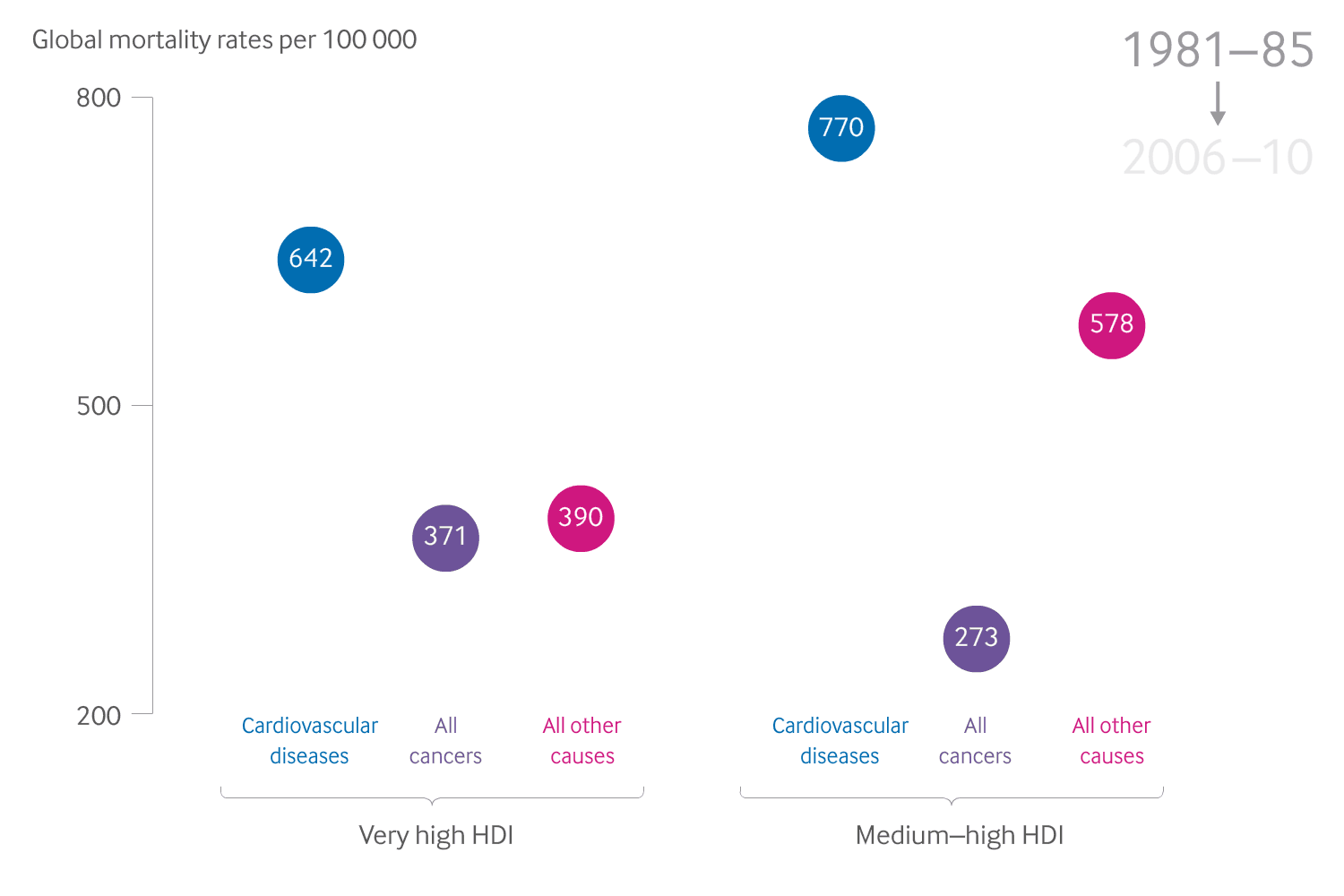Intended for healthcare professionals
CCBYNC Open access
Rapid response to:
Research

Benchmarking life expectancy and cancer mortality: global comparison with cardiovascular disease 1981-2010
BMJ 2017; 357 doi: https://doi.org/10.1136/bmj.j2765 (Published 21 June 2017) Cite this as: BMJ 2017;357:j2765
Rapid Response:
Re: Benchmarking life expectancy and cancer mortality: the real human evolutionary nutrition, and human industrial chemical causes
Again we see extra-ordinarily sophisticated analyses of the major causes of death of humans, using piled-high medical assumptions about causes. Yet, although evolutionary data on human 'survive-thrive' physiology and metabolism is known, it is eschewed. CVD rates soared after men had been 'working in' factories and wars (where they also were encouraged to smoke heavily) that were overwhelmed with industrial toxins. Cancers rates also rose (in the famous chimney sweeps) in the highly exposed, but more slowly. The other characteristic, apart from human chemical pollution, was that fresh food quality in poor city industry workers and families was dreadful, and phytochemical intake, nearly non-existent.
However, PARTICULARLY for humans, as a very sophisticated energy conservation mechanism, a surprisingly wide range and high volume of micronutrient dense foods are required for optimal health. Due to migration and nomadism, humans have come to occupy very different environments, so food types are now extremely varied. These micronutrients, largely phytonutrients, provide modulation of cell protection systems for uniquely energy-efficient metabolism, and high level immune function and cell repair. If this system is functional, it also provides a good detoxifying system of many natural chemicals - better than most organisms. This allows potentially long and healthy life-spans. Humans have devised and come to depend on complex cultures of food gathering and preparation. These traditions are passed down generations and across groups, to allow humans to survive, and hopefully thrive.
In the 1960's after Rachael Carson's Silent Spring and the US Surgeon general warned that smoking caused cancer, frankly, mid-term toxic chemicals were controlled more effectively and CVD rates dropped precipitously in Western countries. Cancer development rates never dropped, only survival, due to rescue, and some curative, hi-tech treatments, became longer.
Now overall, there are thousands of 'unknown if safe', persistent industrial chemicals released. Food on average is bred to not produce their own secondary 'self-defence' chemicals, and is ever more refined, especially, along with the worst of the industrial pollutants in lower HDI countries.
Current governments have given up and are letting the conglomerates pick off the the planet's resources. This is in a rush to commodify resources before world-wide manifestations of pollution (a rare word these days), manifest as climate and ocean change, affect even the industrial giant CEO's.
Thus we see obvious contamination by fracking chemicals EVEN of human drinking water ways in poorer ares of high HDI countries, and bee kill off by cancer causing chemicals. The rest of us are more or less subtlety exposed the whole time to our chemical, Anthropocene environment.
Get out of your industrial labs, do real evo-bio-research and turn arable land under high-input monocultures back into clean mixed smart eco-farms. The cost of repair of our (and the Earth's) health by this type of food production will be way less that all cancer, CVD, 'obesity' and/or chronic disease, medical devices and drugs, and their research. Real food helps with the body's environmental chemical management. It's never too late to change - until the Earth's life is gone.
McGill, A. T. (2014). Past and future corollaries of theories on causes of metabolic syndrome and obesity related co-morbidities part 2: a composite unifying theory review of human-specific co-adaptations to brain energy consumption. Archives of Public Health, 72(1), 31. doi:10.1186/2049-3258-72-31
Competing interests: No competing interests